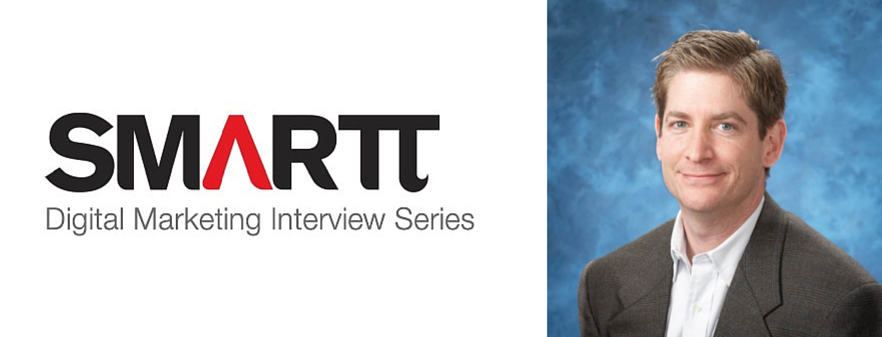Digital Marketing Series with Technology Marketing Consultant Alex Rassey

Today’s Digital Marketing Interview features Alex Rassey. Alex is a marketing consultant who has worked in the technology sector for more than 20 years, at companies ranging from multi-national companies with complex channel partners to start ups, two of which he’s helped take public. We’ve asked Alex for his views on how marketing operations at small-to-medium businesses and start-ups can approach digital marketing.
Alex, you’ve been a marketing executive for many years and dealt with all kinds of technology companies. How has digital marketing changed marketing operations?
Digital marketing has provided some important new elements to the marketing mix. First, it’s very efficient, in that you have moved beyond the direct blast or RSS model. Now you can have followers, such as on Facebook, LinkedIn, and Twitter. Second, it allows you to show a more personal side to your business (company persona). Third, your audience can interact and have richer conversations.
Marketing operations must now figure out how to engage with the right frequency, how to measure success, and what to do with all dashboard metrics once you get them.
You need new roles and new tools. Content marketing is definitely the first step and that role has expanded beyond the traditional collateral, event and sales enablement responsibilities. If you spread around the task of content creation, you need someone to manage the campaign calendar because while you may have great content, there has to be a single point of control to optimize when and what content gets published; otherwise it causes confusion and the impact is less multiplicative. For tools, you can’t do without a great command center service that lets you post or schedule to multiple social outlets from a single console.
Finally, there’s a need for consolidated dashboards to determine whether the basics of the marketing program are running well. You should at least have feedback that lets you see at a glance how your key metrics are doing, for example via red/yellow/green indicators.
Dealing with metrics is harder than it seems, especially if you have to measure tonality. While artificial intelligence tools are being perfected to do this, human interpretation is still the best way to go for now.
How has it changed how you interact with other areas of the company?
Marketing definitely needs more help from IT. However, for small-to-medium-sized businesses (SMBs) with limited IT resources, it's much better to use cloud services than to add more burden to IT responsibilities. I find that IT departments at smaller companies can be understaffed and struggle to run the company’s day-to-day business. If you have a window you must hit with your campaign, for the sake of expediency, just make sure that IT signs off on the security of the cloud service you want and you can move on.
What do you feel the biggest challenges are for a SMB or start up, from a digital marketing perspective?
An SMB will be challenged to do everything out of Marketing, so other areas of the company need to contribute. A good first step is to make sure that executives buy into AND participate in the program. For example, I don't mean just ghost write for them, but have them directly involved to be filmed, to write a short piece of content, or to respond to some of the comments and questions from blogs.
Build or buy? What advice would you give to SMBs or startups about building an in-house team for digital marketing versus using an agency?
Agencies typically lack the depth of understanding of your business to respond deeply. On the flip side SMBs starting down this path don't have a lot of headcount or skills. I would start off with a digital marketer who can write (if you can find such a rare talent). From there you can grow the team or that person can interface with an agency to get the fidelity, cadence, and brand appropriately messaged.
Regardless of in-house or agency, the main thing is consistency. If you can’t execute consistently and frequently on a program, don't even start. A blog every 6 months isn't going to do very much. Companies are blogging three times a week. Also, you need to monitor. If there are comments posted on any of the outlets and no one from your team is replying within 24 hours, then your audience disengages.
Bio: Alex Rassey has been a marketing executive in the technology industry for more than 20 years, at organizations ranging from large international corporations to start ups. As a VP of Marketing at Infonet Services Corporation, he was responsible for a $20 million cloud messaging business, a $100 million Internet and IP services business unit, as well as corporate communications leading up to the company’s IPO. At Irdeto, a security and media SaaS company, he defined and launched a SaaS media that allowed movies and TV shows to go mobile for brands such as: Oprah, Martha Stewart, CBS news stations, NFL, Comcast and many others. Alex’s degree in applied mathematics and MBA allows him to take both a qualitative and a rigorous data approach to market analysis. He can be reached at: arassey@mac.com


